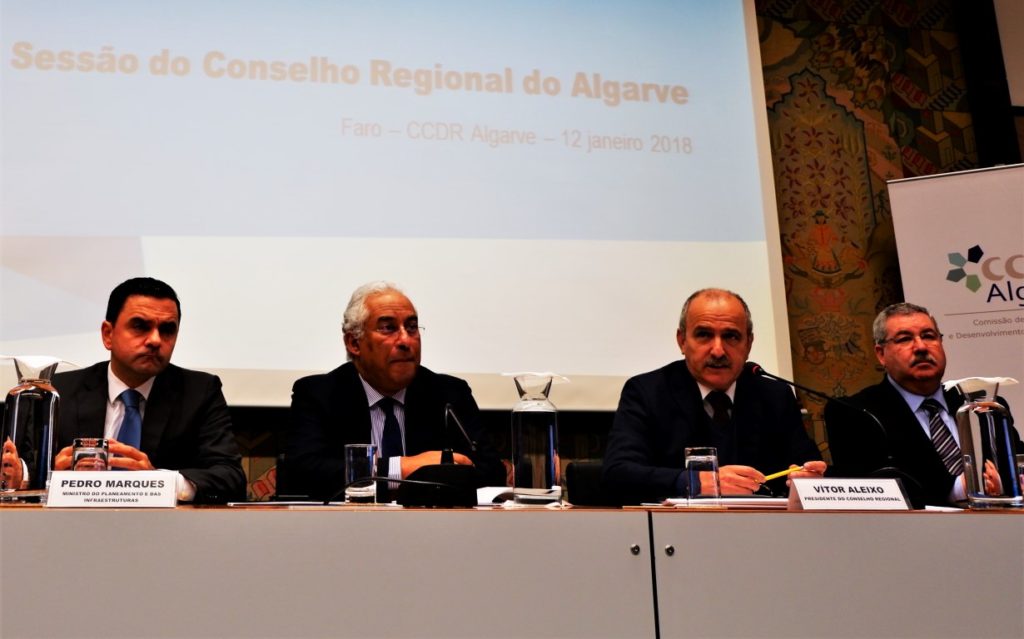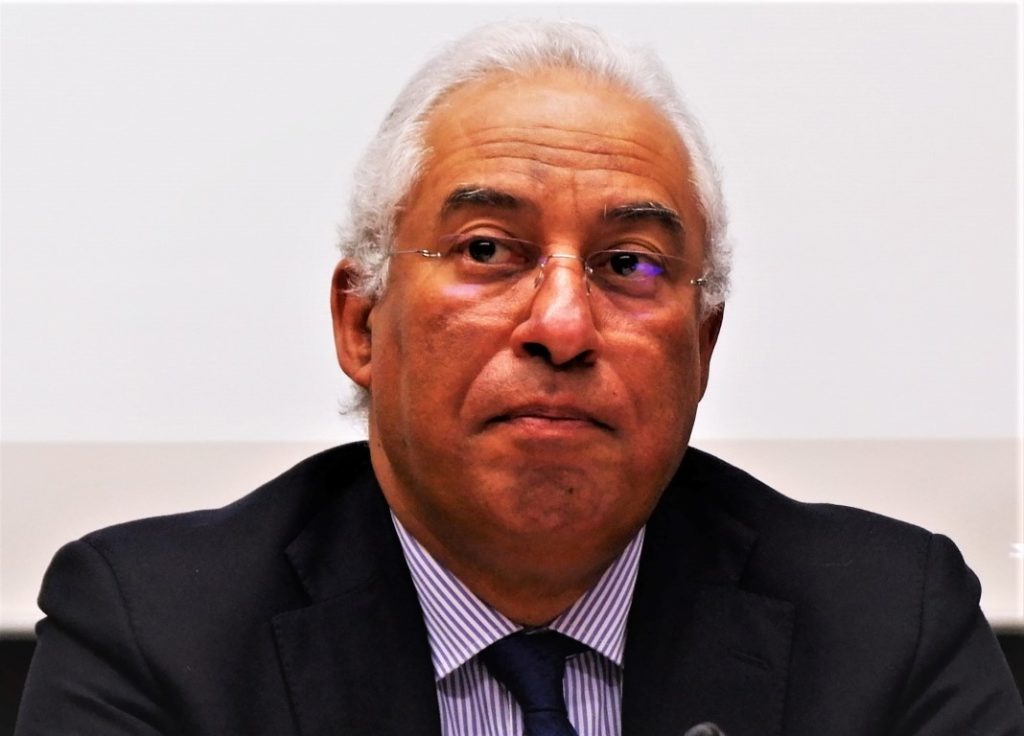 Improving mobility in the region, associated with greater and more effective intermodality, the enhancement of endogenous resources and the construction of new public infrastructure, particularly in the area of health, are some of the priorities that the Algarve has for the next decade.
Improving mobility in the region, associated with greater and more effective intermodality, the enhancement of endogenous resources and the construction of new public infrastructure, particularly in the area of health, are some of the priorities that the Algarve has for the next decade.
Prime Minister António Costa was yesterday in Faro, to challenge the living forces of the Algarve to present proposals for the national strategy to be adopted between 2020 and 2030 and heard many suggestions, but also «concerns».
The debate that took place this Friday, during the Algarve Regional Council meeting, was just the first moment of a process that will last three months, during which the entities that make up this consultative body of the Regional Coordination and Development Commission from the Algarve, representing the various sectors of civil society, are invited to submit proposals.
Still, as revealed to the Sul Informação Francisco Serra, president of the CCDR of the Algarve, it was already possible to understand which are some of the priority axes for the Algarve.
“What I can synthesize from what happened in this Regional Council is that the concerns are centered on mobility, on the integration of different modes of transport and on the construction or modernization of some infrastructures”, said Francisco Serra.
Among the works that the living forces of the Algarve want to see completed, are «the electrification of the railroad and the railway access to the Airport”, but also “infrastructures in the area of health, ecoways and city rehabilitation”.
Another issue that was raised was the need to qualify the workforce in the Algarve, bearing in mind that this «is a tourist region, which makes a great contribution to the country's Gross Domestic Product», without forgetting other economic sectors.
"We have to train more people to make them available in the labor market, but we also need to value seafood, agriculture, indigenous products, culture and handicraft in the region", considered the president of CCDR do Algarve, in his statements to Sul Informação.
 The work that will be done in the coming months may prove to be fundamental for the future of the Algarve, taking into account that the Government wants to "build a matrix of what we intend to be the national strategy for the post-Portugal 2020", as revealed by António Costa , who was in Faro accompanied by the Minister of Planning and Infrastructure Pedro Marques and by the Secretary of State for Development and Cohesion Nelson de Souza.
The work that will be done in the coming months may prove to be fundamental for the future of the Algarve, taking into account that the Government wants to "build a matrix of what we intend to be the national strategy for the post-Portugal 2020", as revealed by António Costa , who was in Faro accompanied by the Minister of Planning and Infrastructure Pedro Marques and by the Secretary of State for Development and Cohesion Nelson de Souza.
“In May, the European Commission will present its first vision for what should be post-2020. If we want to influence it in any way, we must present our own vision of what we want for Portugal», illustrated the prime minister.
The next Community Support Framework, stressed António Costa, should not be so generous for Portugal as those that preceded it. Firstly, because the UK will no longer contribute to the European Union budget.
On the other, because Brussels "has taken on a set of new policies that will necessarily consume resources, in the areas of security and defence, migration policy, the transition to the digital society and adaptation to climate change."
Thus, the sooner Portugal tells the European Commission what it wants, the more chances it has of being able to secure the funds it wants.
And there is homework done, bearing in mind that the Government has already met with Universities and with the large business and industrial associations, before starting a round of the Regional Councils of the different CCDRs in the country.
According to António Costa, the strategy to be assembled will be based on three main axes: innovation and knowledge, qualification, training and employment, and demographic sustainability.
On the other hand, priority areas of action have already been defined, the first of which will be the valorization of energy resources, with a view to adapting to climate change.
The economy of the sea, the forest and rural development, the enhancement of low-density areas and a commitment to inclusion in global trade networks, "taking advantage of the Atlantic axis and airspace", are other lines of action identified by the Government .
These are, in the end, the beacons of what should be the Algarve's contribution to the national strategy. Not least because, bearing in mind that the region has long been denied access to the European Union's cohesion funds, any cents that can arrive from Brussels are welcome.


















Comments